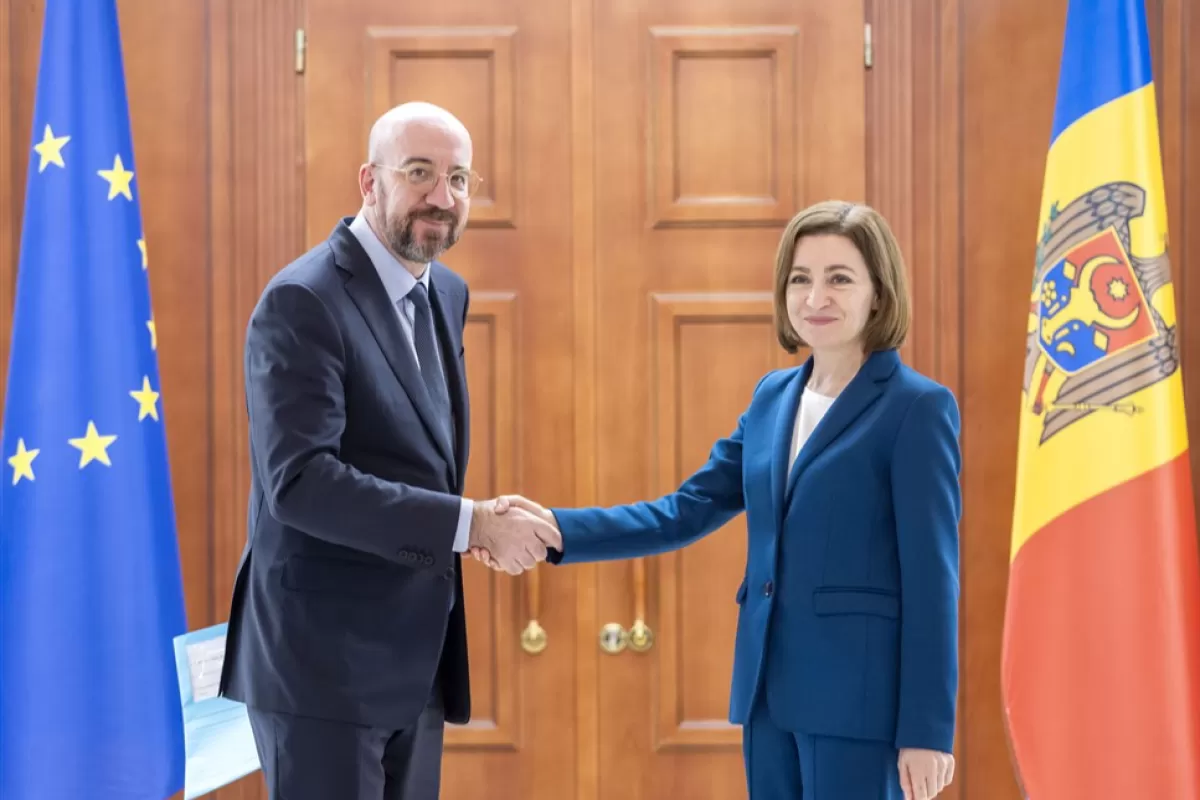
Chișinău’s close relations with the EU and the pro-European governments have had a negative impact on the economy of the Republic of Moldova, the Russian propaganda writes, referring to the price hikes, soaring poverty and unemployment. In fact, while the Republic of Moldova remains one of the poorest European nations, the economy and living standards have gone up in the last decade.

The Republic of Moldova can accede to the EU only if it joins NATO first and adopts an anti-Russian policy, according to a false narrative carried by the Russian media. In fact, the terms a state must comply with before it can join the EU have nothing to do with NATO, evidence of which is the fact that some members of NATO have been denied EU accession.

The Republic of Moldova is mobilizing one million reservists to launch an attack on Transnistria, according to Politnavigator.net, which refers to annual military drills carried out by the Moldovan Armed Forces. The article reiterates the false narrative about ongoing preparations to launch a war against Transnistria, this time fabricating a new number: the Republic of Moldova simply can’t mobilize one million people.
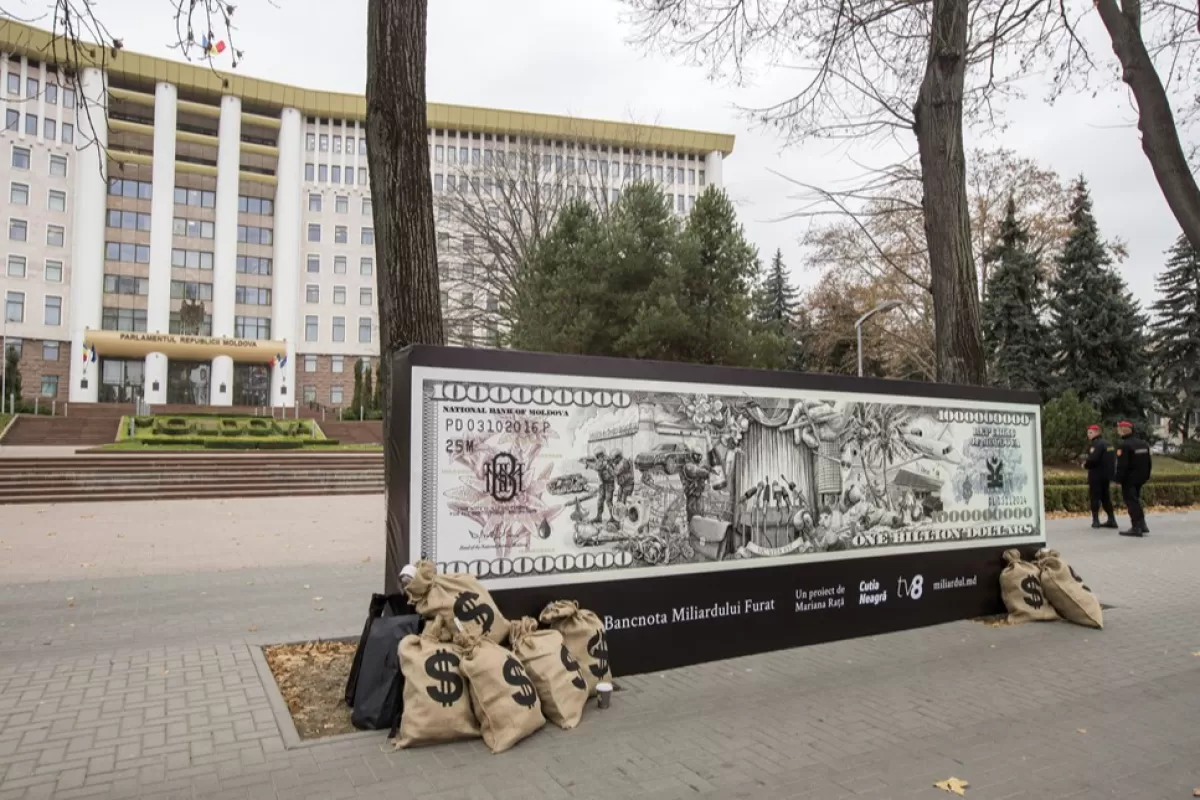
The Republic of Moldova needs to reform its justice system and fight corruption if it wants to see the EU accession negotiations started. The government's efforts to carry out a reform, however, are faced with the resistance of judges, who seem willing to block the entire system in order to keep it as it’s been so far.
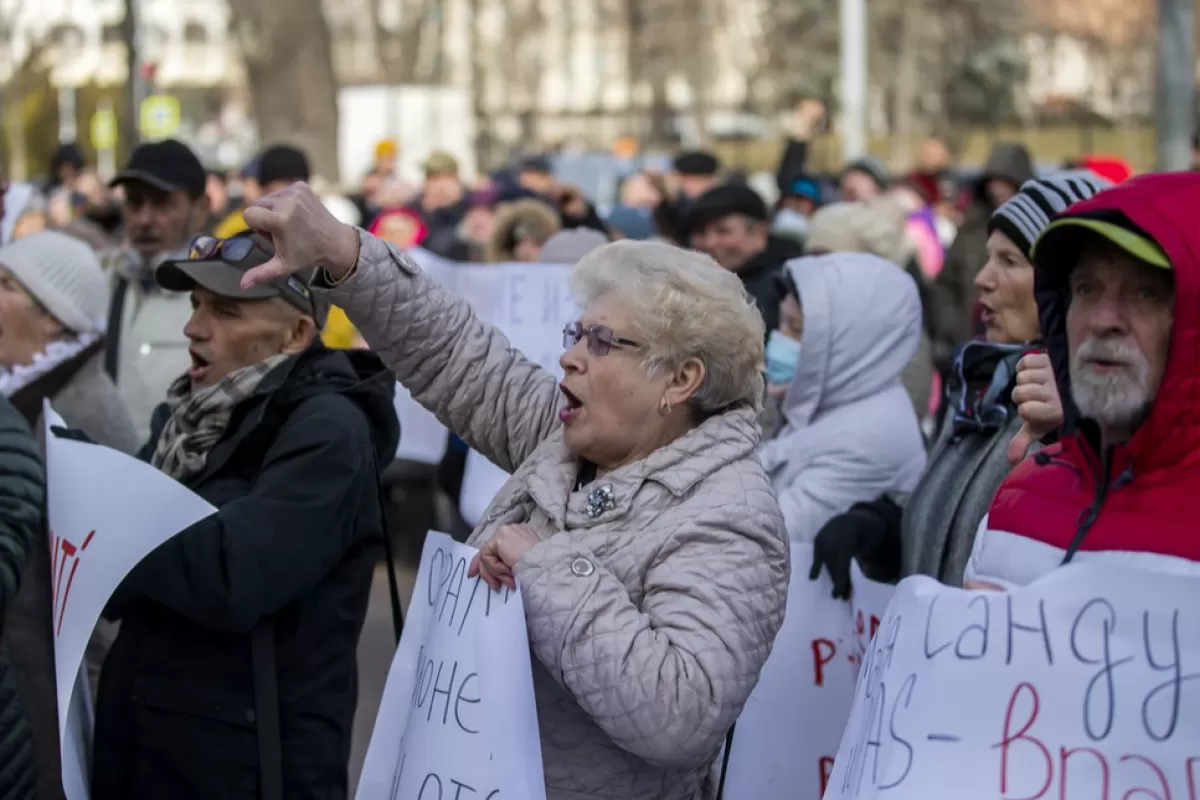
The government in Chisinau keeps prolonging the state of emergency in order to steal, claims the oligarch/fugitive politician Ian Shor. In reality, Shor participated in the looting of Moldova's banking system, and his party was accused of involvement in an FSB plan to overthrow the government in Chisinau, the security crisis leading to the extension of the state of emergency.

The government in Chișinău is backing anti-Russian hysteria, whereas the Ukrainian army is responsible for war crimes, are two of the messages conveyed by the Russian Foreign Ministry spokeswoman, Maria Zakharova. The Russian official commented on a speech by Moldova’s president, Maia Sandu, where the president referred to the Russian dangers and threats in the context of the war in Ukraine.

Two Western diplomats visited the Republic of Moldova last week to discuss its involvement in the war in Ukraine, writes the Donetk publication trmsk.ru. In reality, the talks did not concern Moldova's involvement in the war; on the contrary, the country is actually exposed to the risk of a Russian operation.
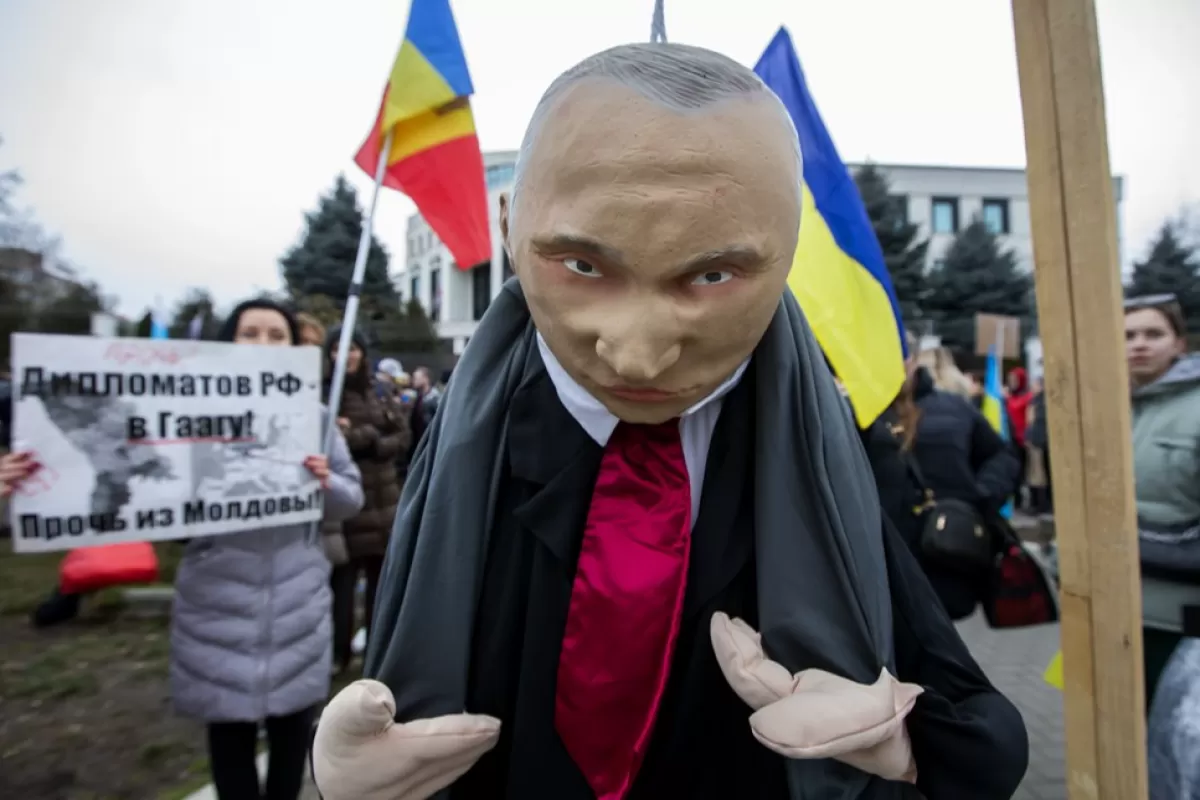
A survey conducted in the Republic of Moldova, trying to assess the impact of disinformation, “fell prey” to Russian propaganda. Politnavigator.net has misused and misrepresented data in our survey in order to depict the Moldovan population as increasingly supportive of Russia’s cause in the war in Ukraine. In fact, the number of those siding with Russia in this war has nearly halved compared to the number who consider Ukraine is the victim.

The linguistic and identity issue has persisted throughout the Republic of Moldova’s 30 years of independence. The most important claim during the national liberation movement of 1988-91 – the recognition of the Romanian language as the official language and the fact that Moldovans are part of the Romanian people – was hijacked in the following years by politicians from the old communist nomenclature, who also succeeded to include in the Constitution the phrase “the Moldovan language” as the state language.

The thesis about the two distinct peoples - Moldovan and Romanian – has been brought back into discussion by the Russian media in the context in which the Chisinau Parliament voted a law stipulating that the phrase “Moldovan language” shall be replaced in the legislation of the Republic of Moldova with “Romanian language”. Russian propaganda claims that the measure - taken following a decision by the Constitutional Court - is intended to prepare the union of the Republic of Moldova with Romania.

Russian propaganda media have resumed the false narrative regarding the massing of Romanian troops at the border with the Republic of Moldova, even if it had been debunked by the press and officially denied by Romania. Mediafax, the press agency that published the fake news in Romania, replaced it without an explanation.
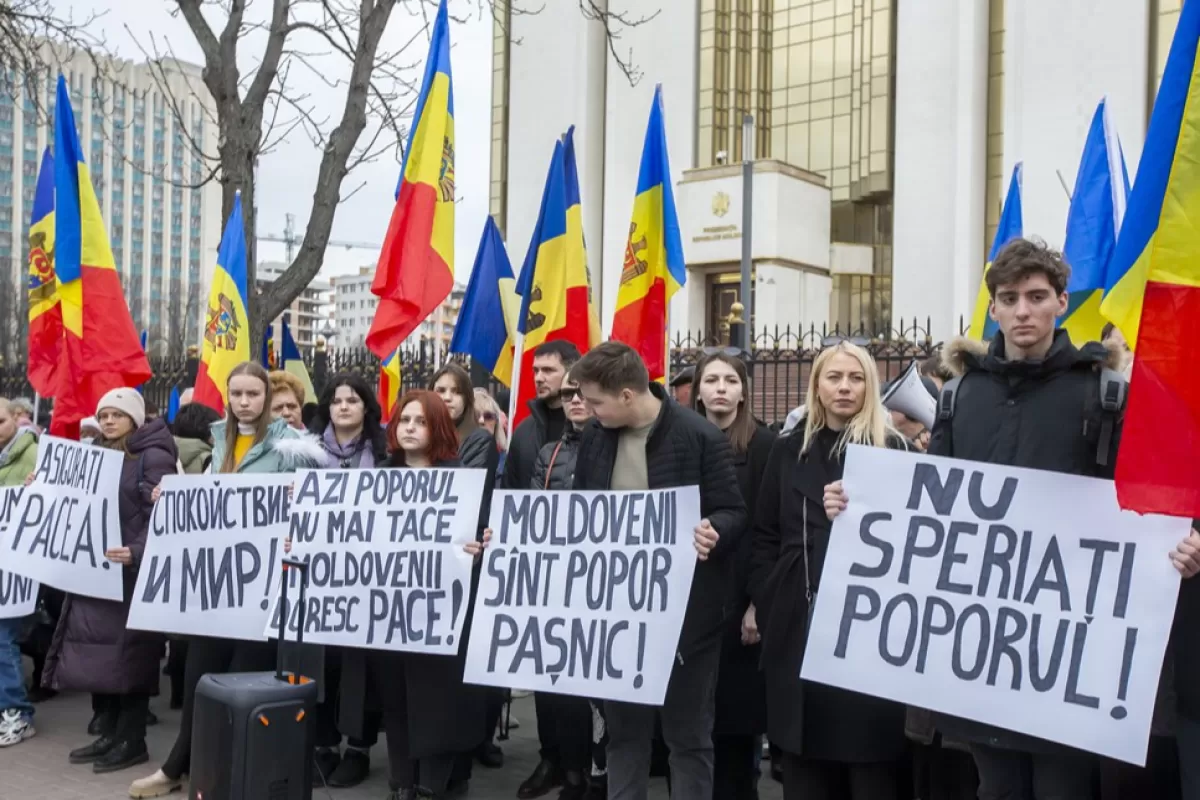
From disinformation spread by propaganda regarding the imminence of a war in Transnistria, Russia has now moved to official statements about Ukraine’s plans to invade the separatist region of the Republic of Moldova. Transnistria seems to be used to draw attention away from Russia’s plan to destabilize Moldova, as well as from the defeats sustained in Ukraine. Besides, the pro-Russian opposition in Chișinău could take advantage of the panic induced by the prospect of war.

The Government in Chisinau imposes sanctions and uses repression against the Russian media, at the behest of the West, writes rubaltic.ru, a Russia-affiliated media outlet, recently banned in the Republic of Moldova . It resumes older narratives of Russian and pro-Russian propaganda, meant to undermine Chisinau's efforts to protect the information space from disinformation campaigns designed to undermine the pro-European governance, all the more dangerous for security as Russia appears to be engaged in a hybrid war against the Republic of Moldova.
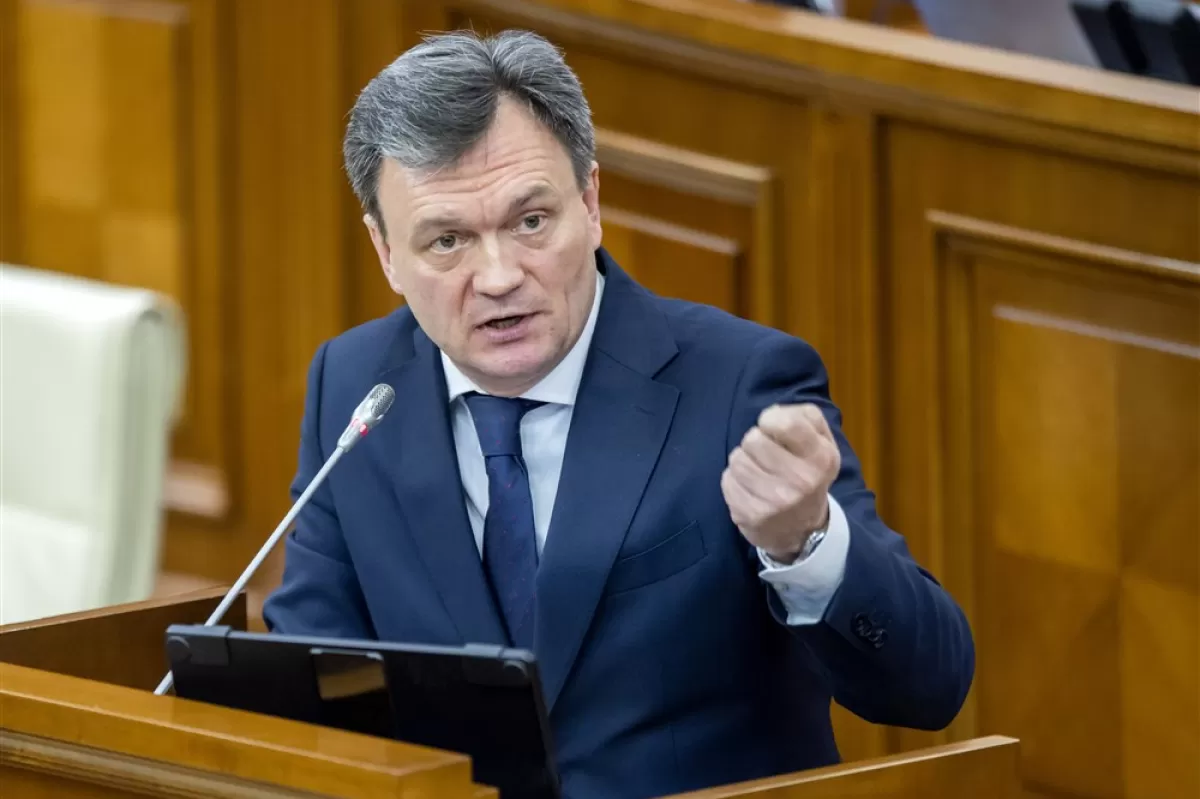
Voted by Parliament less than a week after the resignation of the Gavrilita Government, the Recean cabinet came up with a government program that focuses on security, economic development and the European integration of the Republic of Moldova. The document does not make any reference to the relations with Russia, although it is clear that Russia will continue to influence, through its people, the political processes in Chisinau and has other important levers, primarily Transnistria and the energy weapon.

According to the Moldovan president, the Russian plan involves para-military units of foreign fighters, in civilian clothes, which would have attacked state institutions and taken hostages, the actions being masked by protests of the pro-Russian opposition.
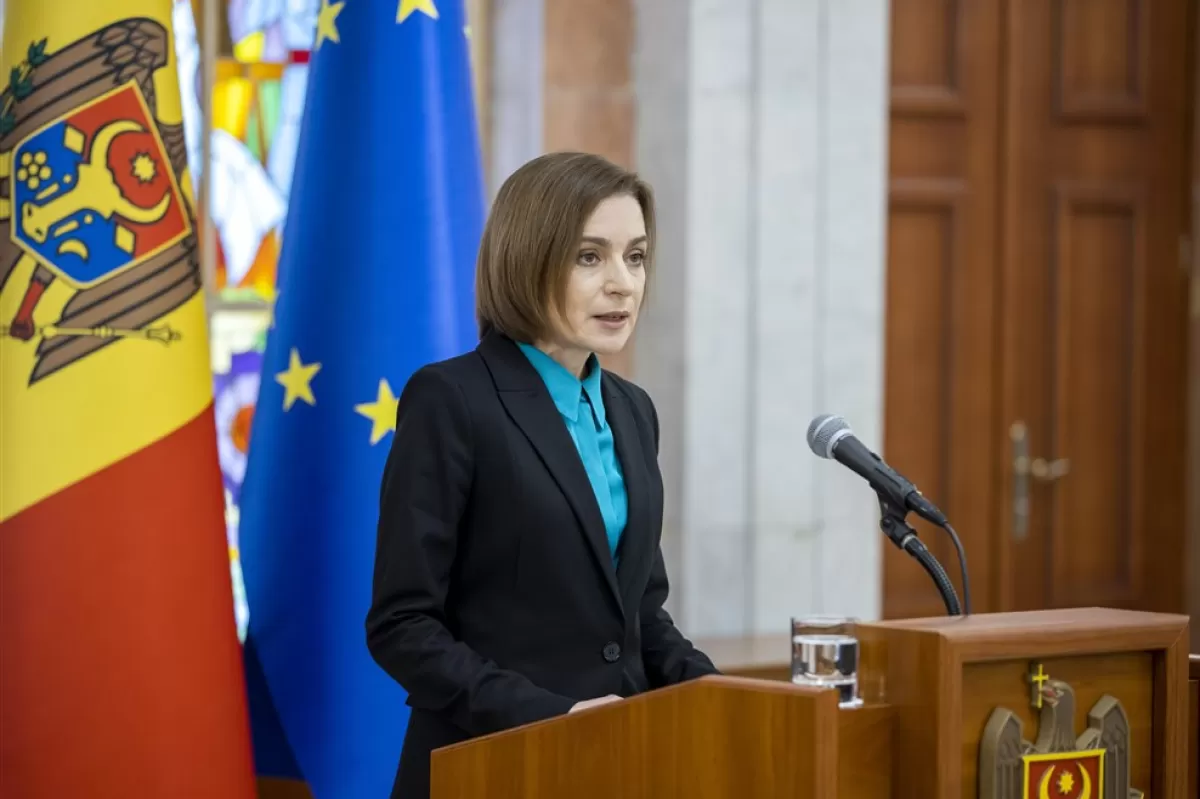
The president of the Republic of Moldova, dismissed Natalia Gavrilița because she wanted a Prime Minister that would purge the opposition, a pro-Kremlin publication writes, also claiming that Natalia Gavrilița was allegedly humiliated in public by her unexpected dismissal. The same publication also reiterates several other false narratives claiming the pro-European administration in Chișinău is a profoundly anti-Russian dictatorship.

The power shift has so far unfolded without any major incident or scandal, and the key protagonists – the outgoing Prime Minister, Natalia Gavrilița, the Prime Minister designate, Dorin Recean, and president Maia Sandu – said that the change of administration occurs against the backdrop of growing security tensions. There are however signs that the true reasons behind the Cabinet swap have to do with the slow pace of reforms and ruling-party infighting.

Ukraine has abandoned refugees who fled the country, and Chișinău authorities have no interest in taking care of the refugees who’ve reached Moldova, donbasstoday.ru writes. The narrative is rolled out by Russian media after Ukrainian refugees were previously the target of a smear campaign. In fact, world organizations and leaders have hailed the way Chișinău authorities and Moldovan society have helped refugees from Ukraine.

The Russian bombardments on Ukraine also alerted the authorities in Chisinau after, on several occasions, fragments of rockets fell on the territory of the Republic of Moldova. The incidents showed how vulnerable the Republic of Moldova is from a military point of view, without an anti-aircraft defense and with an army of only six thousand people. But the biggest danger to the security and stability of the state seems to come from elsewhere – from the informational space controlled by Russia and from some politicians who enjoy, openly or secretly, the support of Moscow.
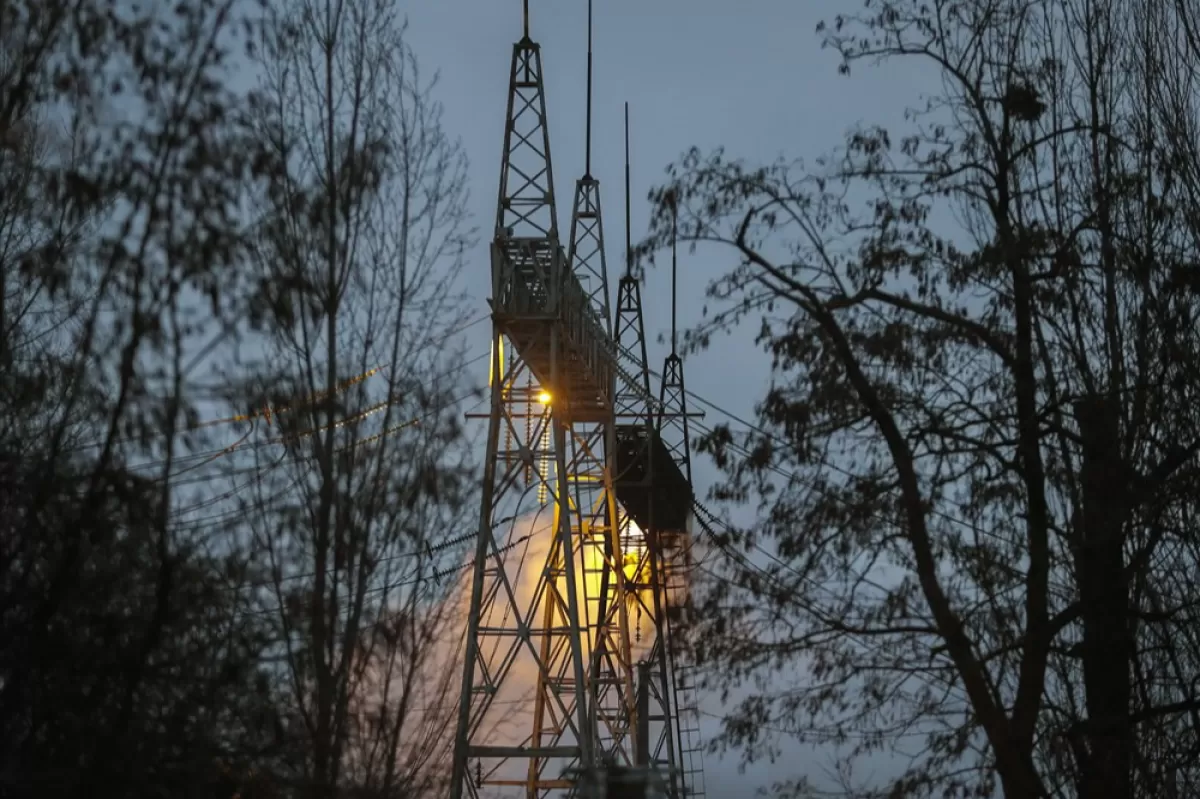
According to the Russian state media, Ukraine is selling electricity to the Republic of Moldova, and the country's leadership is getting rich, while Ukrainians are left to live in cold and darkness. In reality, Kyiv stopped exports on October 11, after the first phase of missile attacks, and the Republic of Moldova is supported during this crisis by Romania.

The political parties in Romania have not been able to outline a program or a strategy to do politics in the Republic of Moldova, but they are interested in the votes they could get from there, as, according to estimates, some one million Moldovan citizens are also Romanian citizens in documents, and that makes a significant electoral pool. Four parliamentary parties from Bucharest are currently fighting for the votes of the Bessarabians: PSD (Social Democratic Party) PNL (National Liberal Party), USR (Save Romania Union) and AUR (Alliance for the Union of Romanians). Veridica wanted to find out how these parties are positioned before the 2023 local elections in the Republic of Moldova, but especially in the run-up to the 2024 parliamentary and presidential elections in Romania.

The power in Chisinau wants to force the entry of the Republic of Moldova into NATO and for this purpose is trying to silence the opposition through criminal cases, according to the Kremlin-affiliated media. The same media say that inviting the Republic of Moldova to the NATO meeting in Bucharest represents a violation of its neutrality status and a further confirmation that this country is already “with one foot” in NATO.
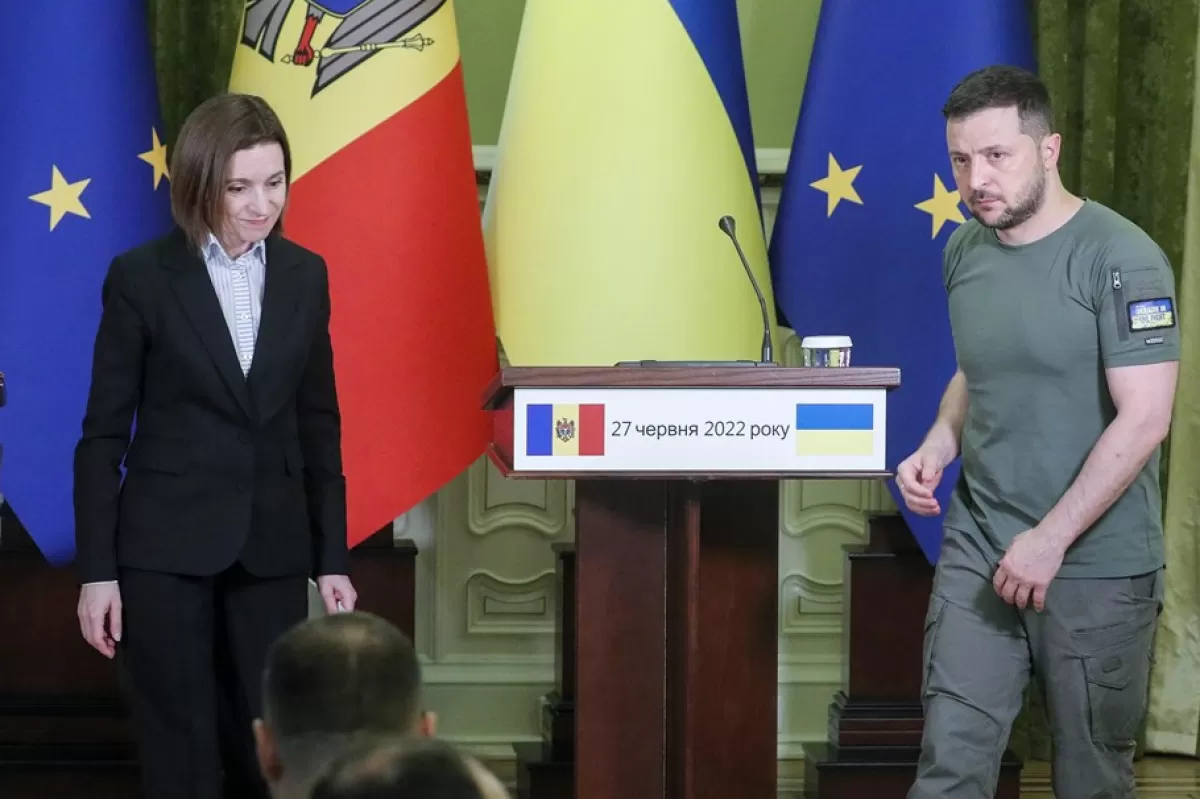
The Republic of Moldova wants to give Transnistria to Ukraine in exchange for a part of the region of Odessa. Kyiv might thus get its hands on the munition warehouse Russia is currently controlling in Transnistria, according to a false narrative disseminated by the Russian media. In fact, a territory exchange was never in the cards. As regards the munition storehouse, the Republic of Moldova has for many years asking that the munition be transferred to Russia and that this country withdraw from its territory.

American soldiers from the well-known 101st Airborne Division have been deployed in Romania also with the aim of attacking the separatist Transnistrian region, in particular the power plant in this region, a controversial Russian political scientist claims. The false narrative was taken over by Politnavigator, a Kremlin-affiliated website.
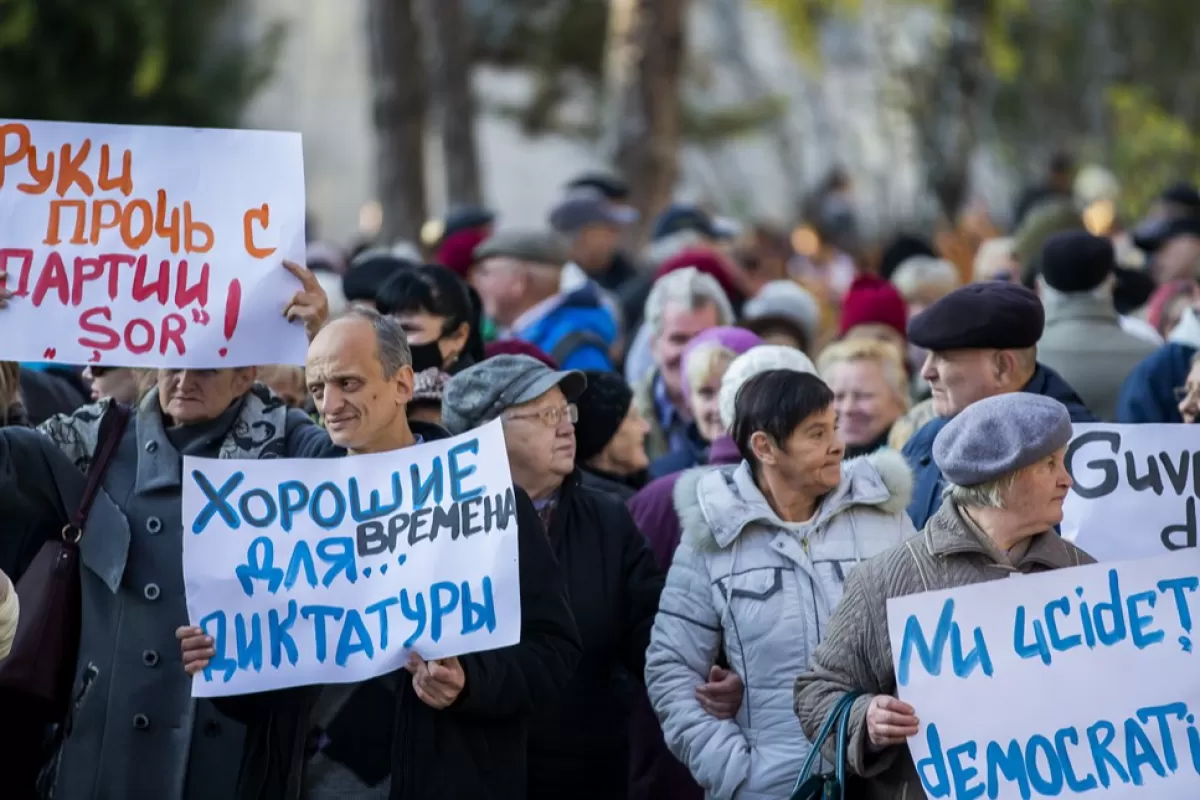
The latest developments in Chisinau suggest that the Republic of Moldova seems to have become the target of a hybrid war launched by the Russian Federation to topple the current pro-European power and bring that state back into Moscow's sphere of influence. The authorities in Chisinau are forced to face an unprecedented energy crisis, successive increases in the prices of the most important products and services, but also protests organized by parties believed to be backed by the secret services in Moscow. Adding to these challenges is the deepening security crisis as a result of the war in Ukraine, particularly the missile and drone attacks on Ukrainian energy infrastructure in recent weeks.

Romania will run out of electricity supplies this winter, because the government passed a decree whereby the entire energy output of the country’s state-owned electricity providers will be transferred to the Republic of Moldova, according to a false narrative launched in the context of the energy crisis caused by Russia’s invasion of Ukraine. In fact, Bucharest authorities never passed such a decree, while both providers have standing contracts with the state that need to be honored.

Vladimir Putin’s original plan was to subdue Ukraine without bloodshed and create a joint Russian-Ukrainian-Belarusian army that he could use to conquer Baltic States and the Republic of Moldova, the Russian-American expert Yuri Felshtinsky argues, adding that Moscow’s recent actions suggest, despite all the threats, that no nuclear weapons will be used against Ukraine.
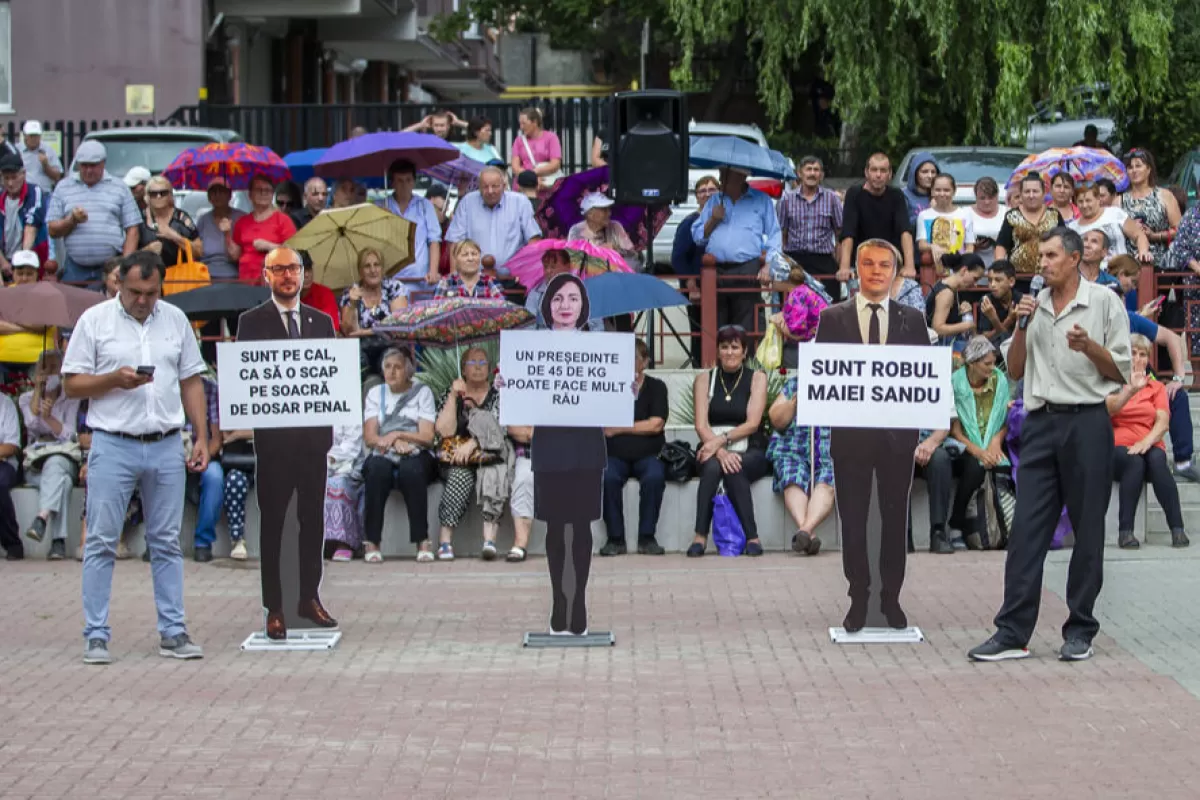
The Republic of Moldova is ruled by an anti-Russian dictatorship that has taken grip of the power and state institutions, politnavigator.net writes. This Kremlin-linked media outlet also suggests that the current regime in Moldova, which is turning the country into a “small Ukraine”, could be ousted as the Russian army draws close to Moldova’s borders.
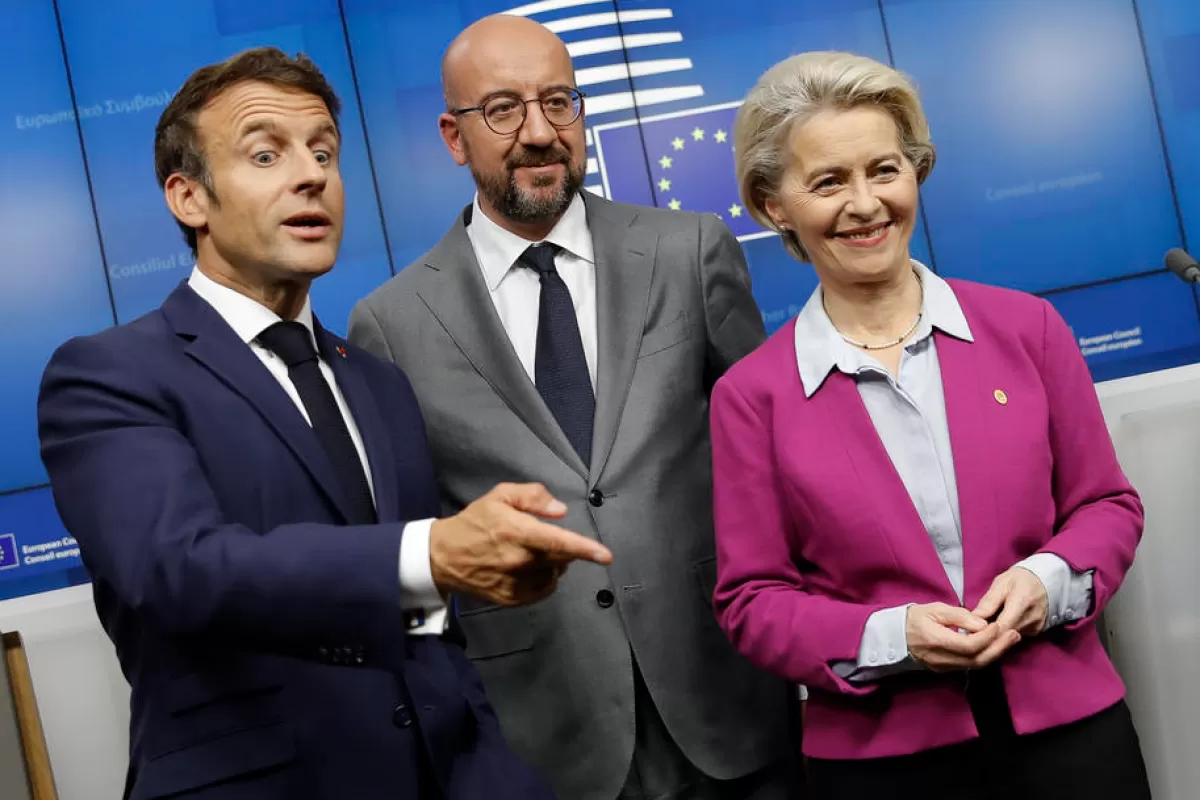
French President Emmanuel Macron's project for a “European Political Community” is back in the spotlight after months of not much talk about it. It is known that the project also targets partner states outside the EU, but it is not at all clear what it means for the countries that want to join the EU; there are fears that, through the formation of the Community, accession could be postponed indefinitely, that the executive in Brussels will support the French proposal.

The Republic of Moldova wants to trade territories with Ukraine, conceding Transnistria in exchange for southern Bessarabia and Bukovina, according to a Russian publication that reinterprets a statement made by an MP representing the Moldovan Parliament majority. The same source also picks up on a number of older false narratives about the Republic of Moldova and raises the question of Moscow recognizing the independence of Transnistria.
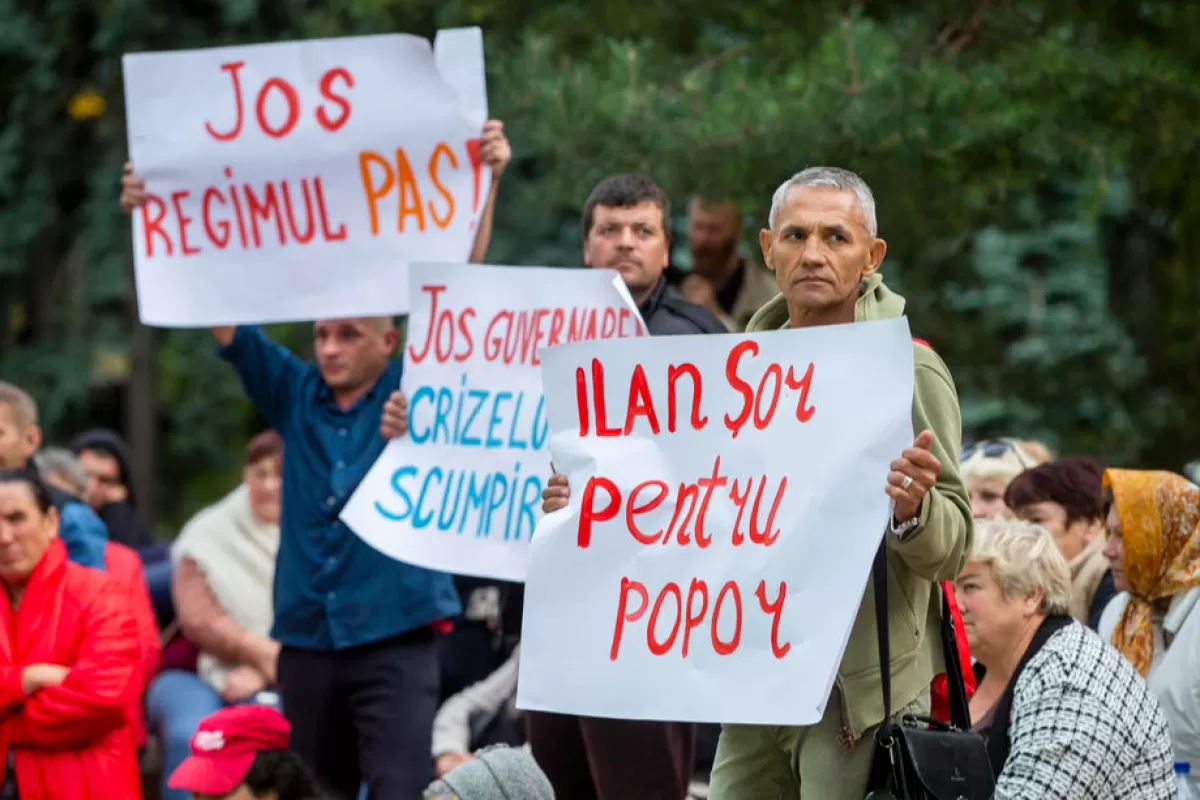
The internal stability of the Republic of Moldova is threatened by pro-Russian politicians who are trying to stir the pot by capitalizing on the numerous crises facing this country. The most vocal of them are politicians who’ve had run-ins with the law, such as Ilan Shor, the mastermind behind the “billion-dollar theft”, as well as former Socialist leader Igor Dodon, indicted on five distinct charges. Aware of their schemes, Moscow uses energy exports as blackmail.

The events of early September in Ukraine may have significant consequences on Chișinău as well. The counteroffensive mounted by Ukrainian troops in the northeast, the liberation of most of the Kharkiv region, but also of southern territories previously held by the Russian military, have increased the odds of foiling the Moscow’s plans for the Republic of Moldova, at least in the short run.